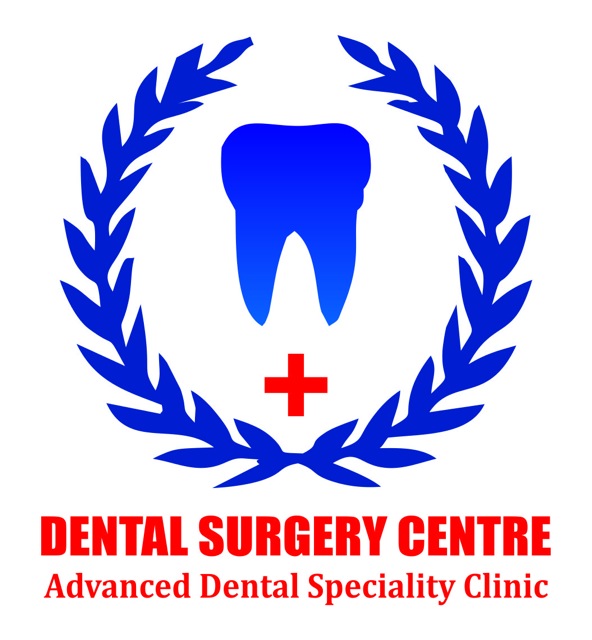PERIODONTICS - GUM DISEASE
Periodontal Disease also called Gum Disease
What Is Periodontal Disease or Gum Disease?
Periodontal (perry–o–DON–tal) disease or Gum Disease is an infection that affects the tissues and bone that support your teeth. It is also called gum disease.
Periodontal disease can become a very serious problem if it’s not treated early.

Warning Signs-Gum Disease
Treating gum disease is most successful in the early stages and can help prevent tooth loss.
- gums that bleed when you brush or floss
- gums that are red, swollen, puffy, or tender
- gums that no longer hug your teeth tightly
- bad breath that doesn’t go away
- pus between your teeth and gums
- feeling that your teeth are loose
- a change in the way your teeth fit together when you bite
- a change in the way your partial dentures fit
You may notice one or some of these warning signs, or you may not notice any warning signs at all.
What Causes Periodontal Disease?
In most cases, the development of periodontitis starts with plaque — a sticky film composed mainly of bacteria. If left untreated, here’s how plaque can eventually advance to periodontitis:
- Plaque forms on your teeth when starches and sugars in food interact with bacteria normally found in your mouth. Brushing your teeth twice a day and flossing once a day removes plaque, but plaque re-forms quickly.
- Plaque can harden under your gumline into tartar (calculus) if it stays on your teeth. Tartar is more difficult to remove and it’s filled with bacteria. The longer plaque and tartar remain on your teeth, the more damage they can do. You can’t get rid of tartar by brushing and flossing — you need a professional dental cleaning to remove it.
- Plaque can cause gingivitis, the mildest form of gum disease. Gingivitis is irritation and inflammation of the part of your gum tissue around the base of your teeth (gingiva). Gingivitis can be reversed with professional treatment and good home oral care.
- Ongoing gum inflammation can cause periodontitis, eventually causing pockets to develop between your gums and teeth that fill with plaque, tartar and bacteria. In time, these pockets become deeper, filling with more bacteria. If not treated, these deep infections cause a loss of tissue and bone, and ultimately you may lose one or more teeth. Also, ongoing chronic inflammation can put a strain on your immune system.
Stages of Periodontal Disease
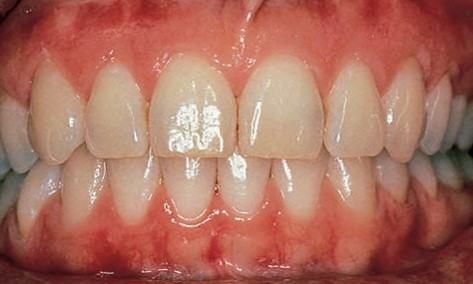
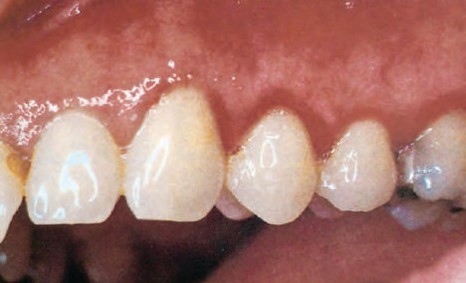
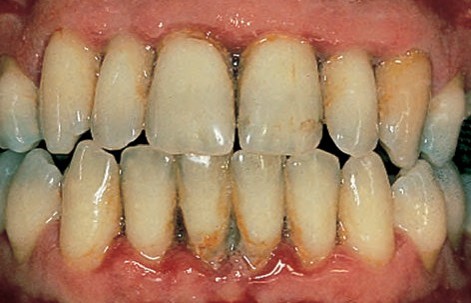
Gigival Disease-Gingivitis
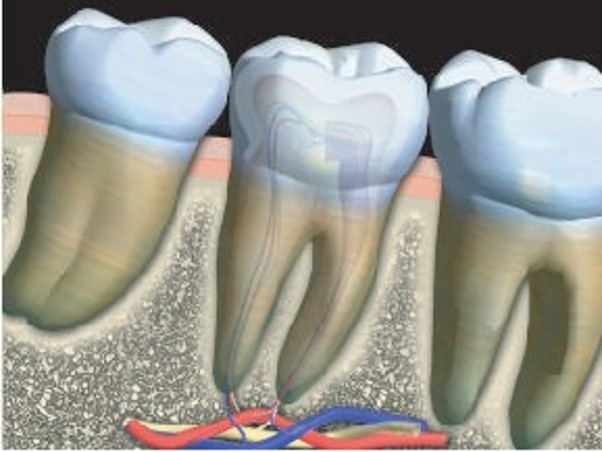
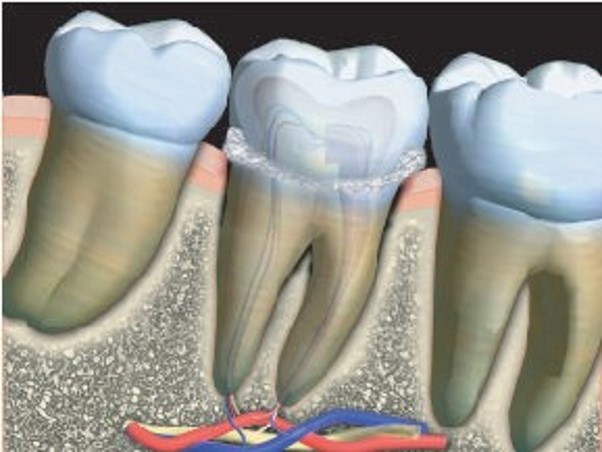
Gingivitis is the mildest form of
Periodontal Disease and is generally
caused by inadequate oral hygiene.
The gums become inflammed, are
red in appearance and bleed easily.
The bone is not affected, and as
such, gingivitis can be reversed with
proper oral hygiene and regular
dental visits. If untreated however,
gingivitis can lead to more advanced
stages of periodontal disease and
bone loss.
Mild Periodontal Disease


In Mild P eriodontal Disease, the
plaque settles around the roots of the
teeth causing the gums to bleed
easily, and become inflammed and
red in appearance. The gums pull
away from the teeth, creating
pockets. The bacteria in the plaque
starts to destroy the supporting bone
around the roots of the teeth. This
bone loss cannot be reversed. If
untreated, mild periodontal disease
can lead to more advanced stages
with significant bone loss.
Moderate Periodontal Disease
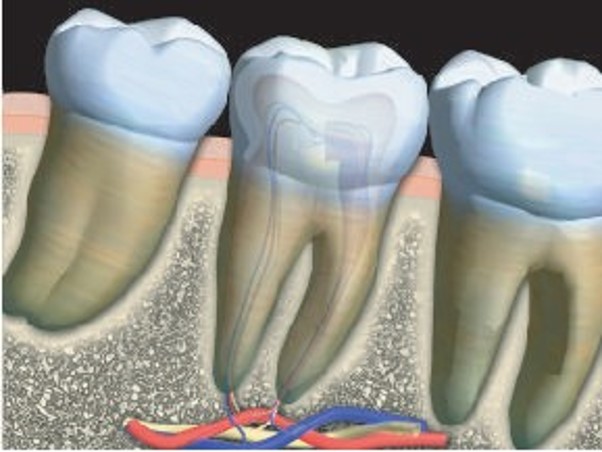
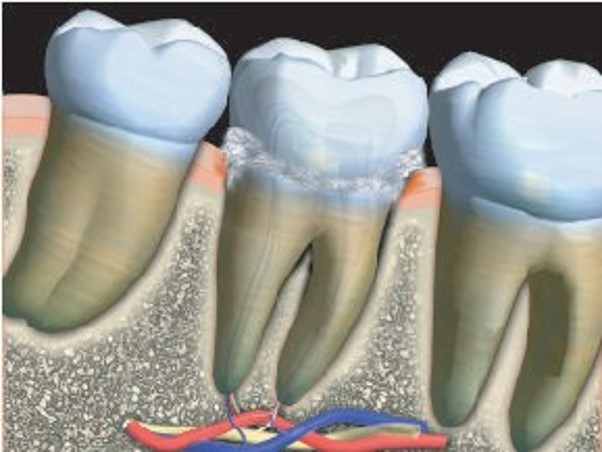
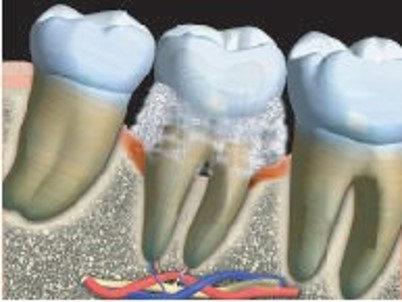
- In Moderate Periodontal Disease, the infectious process progresses around the roots of the teeth causing recession of the gums and further bone loss. The teeth become loose and may shift. This bone loss cannot be reversed. Individuals may also suffer from bad breath as a result of the infectious process. Although periodontal disease is usually not painful, if untreated, moderate periodontal disease can easily advance and lead to tooth loss.
Severe Periodontal Disease
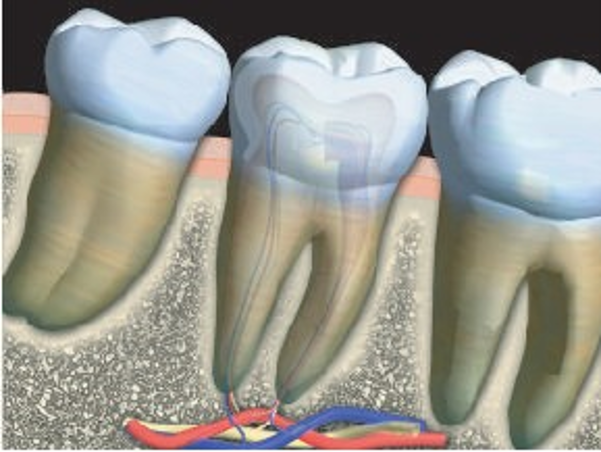

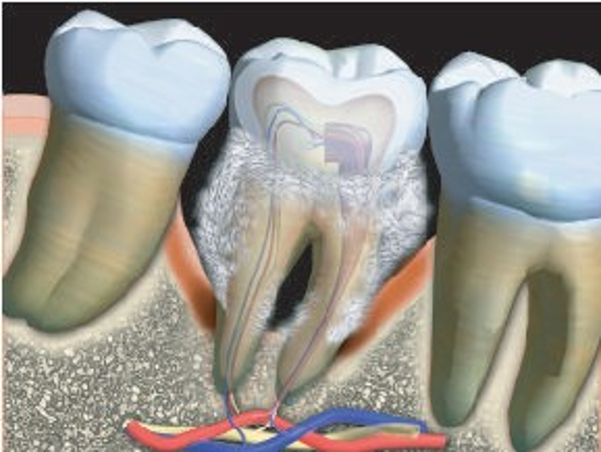
In Advanced P eriodontal Disease,the bacteria and plaque have caused significant bone loss with advanced recession of the gums. There is very little supporting bone left and the teeth are loose. At this stage, painful absesses in the gum may be present. Most teeth that have reached this tage of the disease require extraction. P eriodontal Disease is one of the leading causes of tooth loss.
PERIODONTAL TREATMENTS AND PROCEDURES
Periodontists are dentistry’s experts in treating periodontal disease. They receive up to three additional years of specialized training in periodontal disease treatment in both non-surgical treatments and periodontal plastic surgery procedures. Periodontists are also experts in replacing missing teeth with dental implants..
Various treatment modalities applicable to treating gum disease
Non-Surgical Treatments
Gum Graft Surgery
Laser Treatment
Regenerative Procedures
Dental Crown Lengthening
Dental Implants
Pocket Reduction Procedures
Plastic Surgery Procedures
Scaling and Root Planing Therapy (SRP)
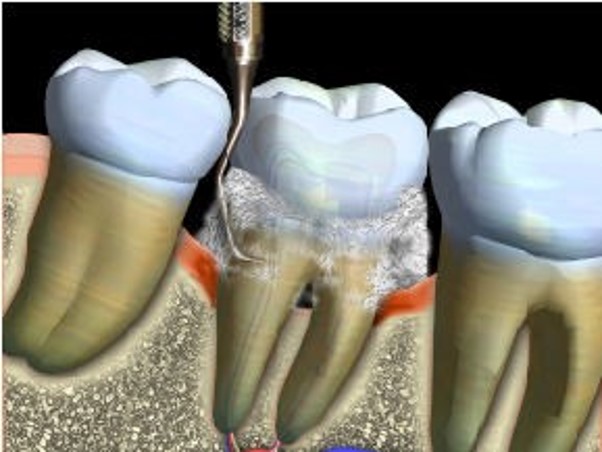
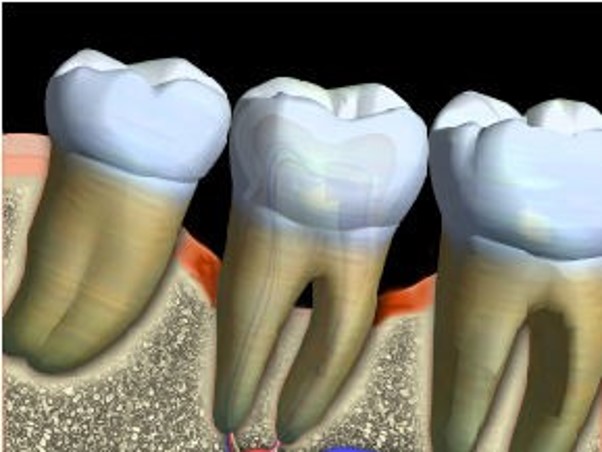
Address
Dental surgery centre.302.vk plaza.4th phase.7th block.100 feet main ring road.Banashankari 3rd stage.opposite to apollo school.near devegowda petrol bunk.Bangalore 560085
Phone
+919844016274 /> +910826695988/87/89
iamveeru@gmail.com /> dentalsurgerycentre@gmail.com
